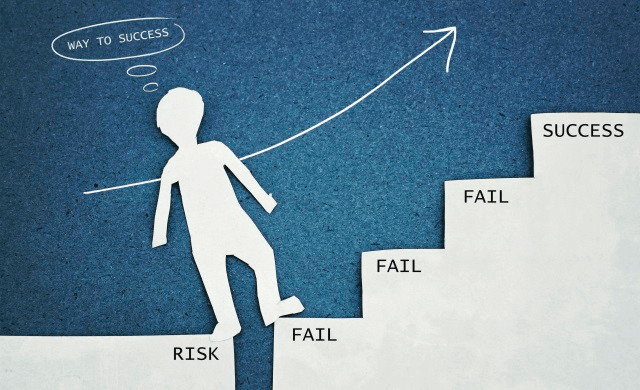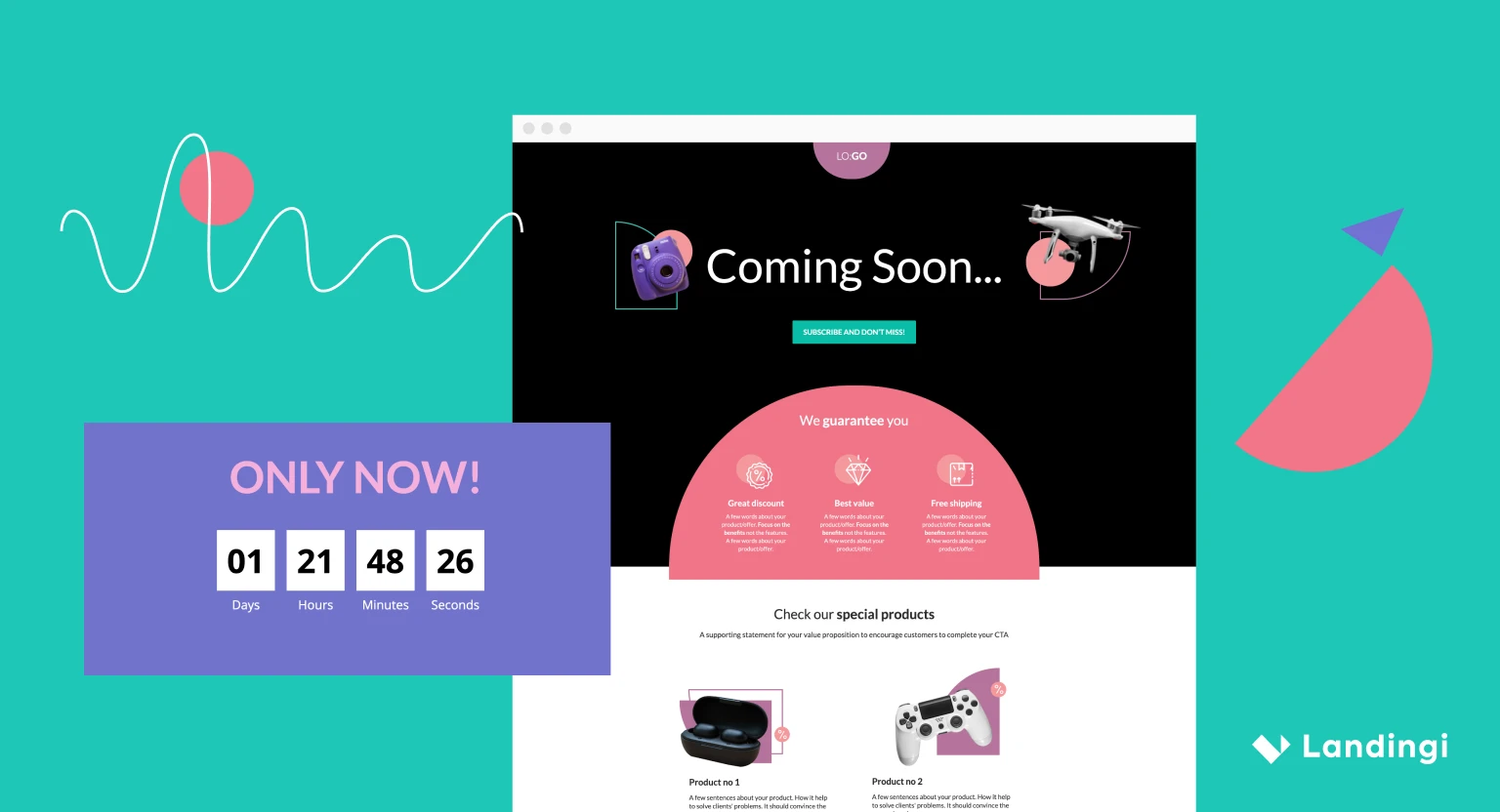
“Failure isn’t fatal, but failure to change might be.”
– John Wooden
Starting a business is hard. Building a digital age startup? Even more so. There are new rules to the startup game, and you (as founders) must learn to accept the hard truth of the digital age … your startup will likely fail.
How likely?
Well, if it is true that numbers never lie, then it is very likely you will fail. According to the business gurus at Forbes, nine out of 10 startups will never reach full viability. While most of the business literature available on the subject focuses on the 10% who are reaping the benefits of digital age success, it is just as important (if not more so) to take a look at what pitfalls our peers in innovation have fallen victim to.
Success is sexy … Failure? Not so much.
While it is a topic often avoided in mainstream commentary, another hard truth of the digital age is that the majority of the so-called startup “pitfalls” are, in fact, self-inflicted wounds. Most startups don’t “fall victim” to anything – they kill themselves.
Generally speaking, many young entrepreneurs try to do too much too fast. From ideas to planning to finance to management and even marketing, they are very often pulled in multiple directions at once. As a result, they lose sight of the startup fundamentals required to build a successful company. While most entrepreneurs recognize that failure is a very natural part of the business beast – and that it can even facilitate success with a “fail forward” attitude (more below) – there are some basic (and common) mistakes that should be avoided on the road to startup success. It is important to understand that while hundreds of startups fail each year, there are not hundreds of reasons why they do.
We have narrowed the list down to the three “deadly sins” of startup failure. As basketball legend, John Wooden, alluded to in his quote above, those who fail to change are doomed to repeat the mistakes of the past. Use this list to help learn from past mistakes and to prepare for future success.
Let’s take a look!
Deadly Sin #1 – Falling in Love (With a Plan)

A recent study of 193 failed startups by the experts at Fractl revealed some interesting failure insights. A pair of researchers engaged in an in-depth review of over 193 “post failure” blog posts written by founders covered what exactly went wrong in the venture. The researchers found that time and again the theme of “business model viability” was cited as the main reason for startup collapse (24%). This is interesting for a variety of reasons but mainly because it points to a common flaw of young entrepreneurs – they fall in love with an idea.
It is their baby, their golden ticket, their product/service that will change the world….
While all of the hype may be true, no matter how brilliant a business idea is, if the model for implementation is not profitable or scalable, the idea is doomed to fail. A perfect example is Alfredo Atanacio from Uassistme.co. As a frequently traveling young businessman, Atanacio found a bilingual virtual assistant helped him stay organized and well-coordinated during his travels. Thinking that other entrepreneurs might enjoy a similar service, Atanacio launched a virtual assistant service catering to individuals. After insisting on sticking to his business plan for several months without much success, Atanacio changed his business model and started targeting businesses instead of individuals. According to Atanacio (as reported by American Express), around 80% of their customers are now businesses. As he says in his own words:
“I fell in love with the idea, and I resented it when people told me how I should be running the business. You become blind and that is an expensive mistake.”
Rather than succumb to the #1 deadly sin of startup failure, Atanacio adapted, and for this reason, his company is still developing nicely today. Take this as an important lesson to always be aware of when the time is right to rethink, replan and readapt your original business model.

Deadly Sin #2 – Emotions Over Logic

Startup failure is often attributed to a lack of intellectual intelligence, business know-how and founder experience. However, it is important to note that these conclusions most often arise from superficial surface reviews of the notions of “success” and “failure.”
What is required is a more in-depth study of the decisions that very often make or break startup success. Luckily for us, this is exactly what the market research firm CB Insights recently provided. By engaging in their own post-mortem review of 101 failed startups, researchers were able to put together a list of the 20 most common reasons why startups fail. While the reasons contained within the list are interesting, perhaps even more so is the fact that they all can be linked to cognitive judgments that are influenced by irrational thought … aka emotions.
In order to begin to develop a more pragmatic approach to what are often emotionally charged business decisions, we should begin to understand the foundations of irrational thought.
Let’s quickly review.
Egoism: While confidence is universally understood to be a leadership asset, one of the most dangerous mistakes you can make with your digital age startup is assuming that just because you are proficient in one area of business know-how, you are proficient in all areas of business know-how. What is known as the cognitive bias of “illusory superiority” has the potential to heavily influence irrational and emotionally charged business decisions. Remember, a business in its purest form is a team … there is no formula for success other than collaboration. Once confidence shifts to overconfidence and lone wolf tendencies, you can expect failure to quickly follow.
Looking at the above mentioned study from CB Insights, egoism manifested in the following ways:
- Getting outcompeted (19%)
- Poor marketing (14%)
- Ignoring customers (14%)
- Disharmony within team/investors (13%)
- Not the right team (13%)
The proper preventative action is a two-part process. First, focus on bringing in the talent you need to thrive. As a marketer of all things startup, guru Joe Pulizzi says, it is important to “invest” in the right people. This means surrounding yourself with go-getters and building your own digital age dream team. Second, implement a system of leadership checks and balances to ensure that business decisions are well thought out, pragmatic and based on what you can control (not what you can’t).
Seeking Short-Term Satisfaction: The concept of “short-termism” refers to the inability of startups and their leaders to see beyond the need to satisfy “the now.” According to a recent study by Barclays, 82% of businesses say that short-termism affects their ability to think and plan for the long-term. While the pressure for immediate short-term profit is very real in the digital age, young startups cannot ignore the need to create a sustainable future.
The startup incentive for immediate success is high, and increasing weight is attached to quick returns on investment. Understanding this, the future is actually a paradox as the interests of short-term profit will inherently be in conflict with long-term sustainability. And yet, while beneficial in the moment, it is actually counterintuitive to never think of tomorrow. If you cannot see yourself and your business far beyond the present moment, then you are already on the path to startup failure. As Barclays pointed out in their research, “short-termism” is likely to lead to negative executive tenures, firm investment and a neglecting of human capital.
Returning again to CB Insights, some of the ways in which the short-sightedness appeared in its study include:
- Running out of cash (29%)
- Pricing/cost issues (18%)
- No financing/investor interest (8%)
Overcoming the conflict between short-term success and future longevity will depend on resolving the paradox of today and tomorrow. A complete startup strategy will focus on accepting the paradox, confronting it and transcending it. Additional cash reserves can also come in handy for any unforeseen obstacles and expenses.
Get 111 Landing Page Examples—The Ultimate Guide for FREE
Arrogance: As a closely related cousin of egoism, arrogance also evolves from the same roots of overconfidence and has the potential to lead to a blinding pride on the part of entrepreneurs. While it is true that a lack of confidence in your business, in your product and in yourself is a recipe for disaster, the opposite extreme (i.e., arrogance) is just as dangerous. Very often, arrogance manifests through certain buzzword cliches that are all too common among young entrepreneurs:
- “If we build it, they will come.”
- “We have no competitors.”
- “It’s the market, stupid.”
- “We have the most features!”
Sound familiar?
This type of rhetoric is dangerous as it can result in sloppy decision making that is based on “brand reputation” and not on principles of sound business. Biblically speaking, pride was considered one of the worst of the “seven deadly sins,” and for startups in the digital age, the same is true. The most important advantage a startup has is the flexibility and capability to adjust to an ever-changing market with unique consumer demand. When pride takes hold, stubborn tendencies appear, and startups have a tendency to engage in non-viable decision making. As The Economist stated in 2003, “humility is in, arrogance is out.” Arrogance manifested in the CB Insights study through:
- No market need (47%)
- Need or lack of business model (17%)
- Poor product (17%)
- Product mistimed (13%)
- Pivot gone bad (10%)
- Bad location (9%)
- Legal challenges (8%)
- Not using network/advisors (8%)
- Failure to pivot (7%)
As we can see, arrogance has the potential to result in a wide variety of problems for young startups. Remember, while confidence is an absolute startup necessity, narcissism and arrogance manifest when you blur the fine line that defines the two. One way to always monitor your humility is to know the difference between a confident proposition and an arrogant one. Confident entrepreneurs passionately “think” they have the right answers and are always investigating to confirm. Arrogant entrepreneurs “know” they have the right answers and fail time and again to investigate alternativesor seek financial advice (e.g., AdvizorPro). Focus on flexible solutions and alternatives that do not deviate too far from your original vision, but still provide alternative decision-making options.
Mental Fatigue: Often viewed as a trivial notion by startup founders and entrepreneurs, work/life balance is no laughing matter. According to Psychology Today, burnout is a preventable hazard that most often manifests in founders due to their “I can do everything” personalities. Entrepreneurs tend to be high achievers, and, as a result, they ignore the obvious signs of mental stress and physical exhaustion until it is too late. Chronic stress has the potential to lead to:
- Physical and emotional exhaustion
- Cynicism and detachment
- Feelings of ineffectiveness and lack of accomplishment
Founders are likely to set the agenda for their startup. As employee engagement and attitude flow from leadership, fatigue often starts at the top and trickles down to negatively affect all employees within a startup. As a recent survey by EY, the global tax, assurance, transaction and advisory services firm, found that one-third of all employees report managing their personal and professional lives has become more difficult in the digital age,… In other words, fatigue is a startup killer. Looking to the CB Insights study, a disproportional work/life balance can lead to startup failure in the following ways:
- Lack of focus (13%)
- Lack of passion (9%)
- Burnout (i.e., a culmination of both) (8%)
Much like other methods of failure prevention, avoiding mental fatigue requires a serious and conscious effort. Exercise and meditation are good techniques to start with as well as disconnecting from work devices for a few hours per day. Support systems should be put in place for all employees, and again, long-term strategies (with a focus on work delegation) should be implemented.
Deadly Sin #3 – Fear of Failure

After all this talk about failure, it is important to reiterate the “white elephant” in the room … failure is inevitable.
The truth is, with nine out of 10 ventures failing, the numbers are simply not in our favor. Yet, as previously stated in the opening section, failure is something that can help drive and facilitate success. Unfortunately, before failure can lead future startup success, founders and entrepreneurs must become comfortable with the notion that failure is likely necessary for long-term business viability. We must “get out of our comfort zone” and engage in the “bold work that revenue growth demands,” as Alex Goldfayn is fond of saying. The problem is, this is something easier said than done.
A recent qualitative study in the Journal of Business Venturing by researchers and business academics Gabriella Cacciotti, James Hayton, Robert Mitchell and Andreas Giazitzoglu touched on this exact point. Interviewing 65 entrepreneurs/potential entrepreneurs in the U.K. and Canada, the researchers found that:
“Entrepreneurs are not only inhibited by their fear of failure, in many cases, they are driven to great efforts by it.”
It is this “fear motivator” that can lead to either procrastination or proactive action to respond to perceived threats. The irony of this specific type of motivation is that we have the potential to waste valuable energy, thereby increasing the probability of failure. The key to overcoming the dualism of the fear of failure trap is to carefully consider what failure means and to implement a well-developed and practiced response mechanism to help deal with failure when it arises. The notion of “failing forward” is one which was popularized by John Maxwell in his book of the same title. It is the idea of turning mistakes into a path for future success. It is important to remember that great innovation is not born; it is typically the result of trial and error.
There are some basic techniques that can and should be applied on both a business and founder level. These include:
- Focusing on learning
- Thinking small to grow big
- Testing, testing and testing some more
- Acknowledging failure
Even though failure is the opposite of what we ideally want (i.e., success) it is all about mindset. Remember, you didn’t fail; you just received a Master’s Degree in what will improve your next business. As Maxwell says in his book:
“If we look long enough for what we want in life, we are almost sure to find it. Success is in the journey, the continual process. And no matter how hard you work, you will not create the perfect plan or execute it without error. You will never get to the point that you no longer make mistakes, that you no longer fail.”
In Conclusion …
While failure is a very real fact of the startup life, there are common mistakes that can be avoided by founders and entrepreneurs in order to help facilitate the process of renewable success. Stick to the list above, keep confidence high and arrogance low, and be prepared to fail forward … with these basic principles you and your business will soon be on your way to startup success in the digital age.




